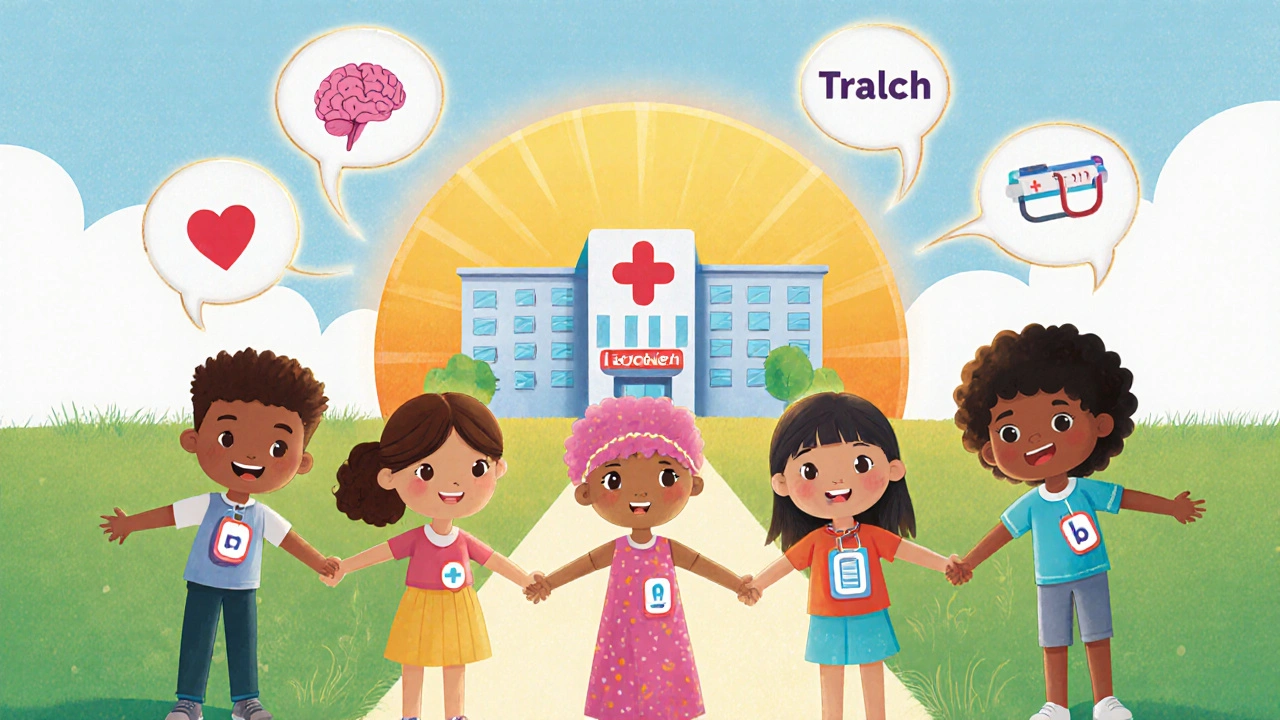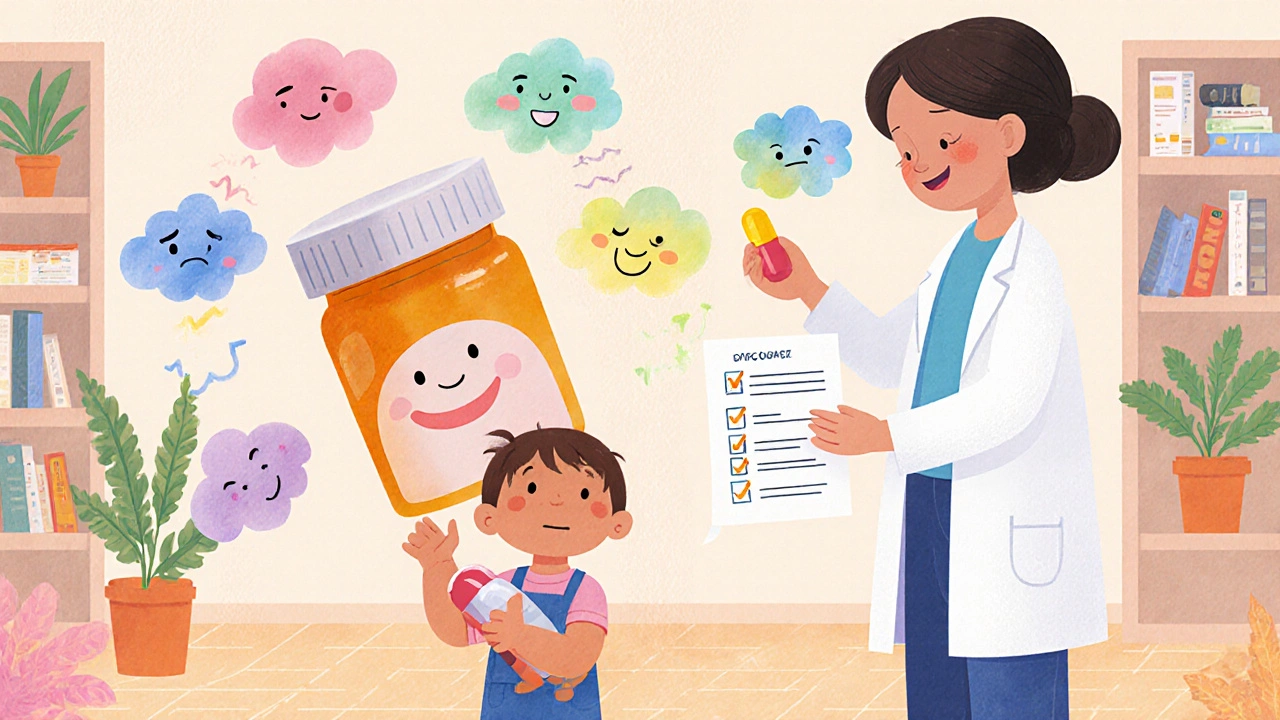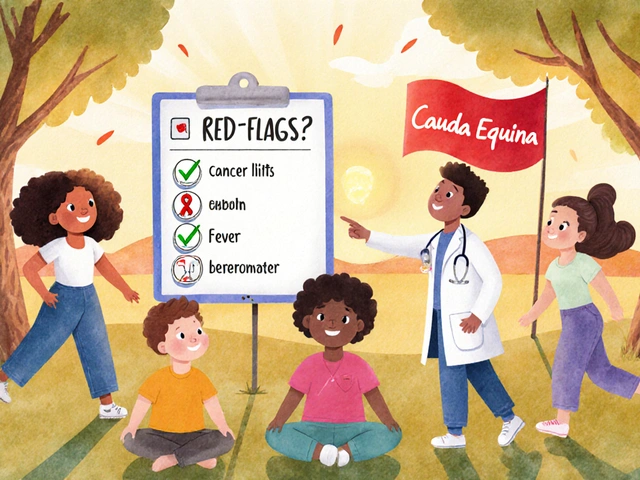Imagine you’ve been prescribed a medication to manage your blood pressure, cholesterol, or depression. You know it’s important. You even believe in it. But then the side effects start - dizziness, nausea, fatigue, or maybe just a weird taste in your mouth. Suddenly, skipping a dose feels like a small victory. You tell yourself you’ll take it tomorrow. Tomorrow becomes next week. Then, you stop altogether.
This isn’t rare. It’s normal. And it’s deadly.
Half of all people taking long-term medications don’t take them as prescribed. That’s not laziness. It’s not forgetfulness alone. It’s often side effects - real, uncomfortable, sometimes scary reactions that make people question whether the cure is worse than the disease.
Why Side Effects Break Adherence
Medication adherence means taking the right dose, at the right time, for as long as your doctor says. It’s not just about remembering your pills. It’s about staying committed when your body reacts badly.
Studies show that up to 30% of people never even fill their first prescription because they’re afraid of side effects. Of those who do start, nearly half quit within the first year - not because they feel better, but because they feel worse.
For people with mental health conditions, the numbers are worse. One study found patients with depression were twice as likely to skip their meds if they experienced side effects like weight gain, sexual dysfunction, or brain fog. And once they stop one medication, they’re more likely to stop others too - even ones for diabetes or heart disease.
Side effects don’t have to be severe to matter. A mild headache. A dry mouth. Feeling sluggish after lunch. These aren’t emergencies. But they chip away at motivation. Over time, the daily discomfort outweighs the abstract promise of “preventing a stroke” or “staying out of the hospital.”
The Hidden Cost of Skipping Doses
When people stop taking their meds, the consequences aren’t just personal - they ripple through the whole system.
In the U.S., nonadherence causes around 125,000 preventable deaths every year. It’s responsible for up to 69% of medication-related hospitalizations. For chronic conditions like high blood pressure or type 2 diabetes, poor adherence leads to more ER visits, more complications, and higher long-term costs.
And the money adds up fast. Each person who doesn’t take their meds as directed costs the system between $950 and $44,000 a year - depending on their condition. But here’s the flip side: when adherence improves, patients save an average of $1,200 per year in avoided hospital stays and emergency care.
It’s not just about saving money. It’s about saving life. A person with high cholesterol who skips their statin for months isn’t just risking a heart attack - they’re increasing the chance of needing bypass surgery, dialysis, or long-term rehab. All of it preventable.
What Works: Real Strategies to Stay on Track
There’s no magic pill to fix adherence. But there are proven ways to help people stick with their treatment - especially when side effects are the problem.
1. Talk to your pharmacist - not just your doctor.
Pharmacists are the hidden heroes of adherence. They see your full medication list. They know what interactions to watch for. And they’re trained to ask the hard questions: “Are you having any side effects?” “Does the pill make you feel weird?”
Studies show that when pharmacists actively manage side effects - adjusting doses, switching brands, suggesting timing changes - adherence jumps by up to 40%. Face-to-face consultations work best: 83% success rate compared to 38% for phone calls.
Don’t wait until you’ve stopped taking your meds to speak up. Bring up side effects the first time you pick up your prescription.
2. Don’t suffer in silence - there’s often a better option.
Just because one drug causes nausea doesn’t mean all drugs in that class will. There are multiple blood pressure meds, antidepressants, and cholesterol drugs available. Some have fewer side effects for certain people.
For example, if a statin gives you muscle pain, your doctor might switch you to ezetimibe or a lower dose combined with a different drug. If an SSRI makes you feel numb or sexually flat, another class like bupropion might work better.
It’s not about giving up. It’s about finding the version that fits your body.
3. Simplify your routine.
More pills = more chances to mess up. If you’re taking five different meds at three different times a day, it’s no wonder you forget or skip.
Ask your doctor or pharmacist if any drugs can be combined into one pill. Or if you can switch to once-daily versions. Some pharmacies offer blister packs or dosette boxes that sort your pills by day and time. Set a phone alarm. Use a pill tracker app. Even sticky notes on the fridge can help.
4. Track your side effects - and share the data.
Write down what you feel, when you feel it, and how bad it is. Use a notebook, a notes app, or even voice memos. Did the dizziness start after lunch? Did the fatigue get worse after you switched brands? Bring this to your next appointment.
This isn’t just helpful - it’s powerful. When you give your doctor specific, real-time data, they can adjust faster. No more guessing.
When Your Mind Tells You to Quit
Side effects aren’t just physical. They’re psychological.
People often feel guilty for stopping meds. Or ashamed. They think, “If I were stronger, I’d just push through.” But that’s not how medicine works.
Medication adherence isn’t about willpower. It’s about design. Your treatment plan should fit your life - not the other way around.
If you’re struggling, ask yourself:
- Is this side effect temporary, or is it lasting?
- Can I manage it with a simple change - like taking the pill with food or at night?
- Have I talked to my pharmacist about alternatives?
- What happens if I keep skipping? What happens if I stop completely?
There’s no shame in needing help. The real failure isn’t missing a dose - it’s letting fear stop you from asking for better solutions.

What the System Needs to Change
It’s not just on the patient. The system has to do better too.
Doctors and nurses often don’t document side effects well. Pharmacists, despite being the most accessible experts, are least likely to record nonadherence - only 52% of them do, compared to 85% of nurses.
That means your struggle might go unnoticed. Your voice gets lost in the paperwork.
Health systems need to build tools that flag high-risk patients - those who refill late, who report side effects, who have multiple chronic conditions. AI-driven alerts can now predict who’s likely to quit based on refill patterns and symptom reports. But only if the data is collected.
And insurance plans? They’re starting to tie payments to adherence. Medicare Star Ratings now reward plans that help patients stay on their meds. That’s a big shift. When payers care about outcomes - not just prescriptions - providers are forced to care too.
You’re Not Alone. There’s a Path Forward
Staying on track isn’t about being perfect. It’s about being persistent. Even if you miss a dose, you can still get back on. Even if you stopped for months, you can still restart - with the right support.
Start small. Talk to your pharmacist. Write down your side effects. Ask if there’s another option. Don’t wait for your next doctor’s appointment to speak up.
Medication adherence isn’t about obeying orders. It’s about owning your health. And you don’t have to do it alone.
The goal isn’t to take every pill perfectly. It’s to find a plan that works - for your body, your life, and your future.





10 Comments
Levi Hobbs
I used to skip my blood pressure meds all the time because of the dizziness-felt like I was gonna pass out after lunch. Then I started taking it at night instead, and boom-no more spinning. Talk to your pharmacist, seriously. They don’t get enough credit. I switched from lisinopril to valsartan and my life changed. No more foggy brain. Just quiet, steady days.
Also, I started using a pill organizer with alarms. It’s dumb, but it works. I even named my pills. ‘Bob’ is my BP pill. ‘Sally’ is my statin. Weird? Maybe. But I don’t forget them anymore.
henry mariono
My dad stopped his antidepressants because of weight gain. He didn’t say anything for months. Just got quieter. More withdrawn. I didn’t realize it was the meds until I found his old prescription bottle in the garage-half full.
He’s on a different one now. Doesn’t cause the same issues. Took us a year to get there. Just… don’t suffer in silence. Even if it feels embarrassing.
Sridhar Suvarna
Medication is not a punishment it is a tool like a hammer or a wrench if you dont like the way it fits you change the tool not your willpower the system fails when it makes you feel guilty for needing help not for needing better help
Joseph Peel
The statistic that 30% of patients never fill their first prescription due to fear of side effects is not merely concerning-it is a systemic indictment of how pharmaceutical education is delivered in primary care. The absence of structured, empathetic counseling during initial prescription dispensing creates a vacuum filled by misinformation and anxiety.
Pharmacists, as frontline providers, must be formally integrated into the prescribing workflow-not as afterthoughts, but as co-architects of adherence strategy. This is not opinion. This is evidence-based public health policy.
Kelsey Robertson
So let me get this straight… we’re supposed to feel bad for people who can’t handle a little nausea to stay alive? What’s next? Should we stop prescribing insulin because it makes you gain weight? Or stop giving oxygen to COPD patients because it’s inconvenient?
This isn’t about ‘side effects’-it’s about weak willpower disguised as victimhood. People don’t die from meds. They die from their own refusal to be responsible. And now we’re writing essays about it like it’s a moral dilemma?
Maybe if people stopped treating their bodies like temperamental toddlers, we wouldn’t need 125,000 preventable deaths a year.
Joseph Townsend
Bro. I was on that sertraline for six months. Felt like my soul was wrapped in saran wrap. Sex drive? Gone. Appetite? Like I’d swallowed a black hole. I cried watching a dog commercial. Then I switched to bupropion. Suddenly I wanted to go outside. Started hiking. Bought a guitar. Now I’m not ‘cured’-but I’m alive again.
Side effects aren’t just side notes-they’re the whole damn story. And if your doctor doesn’t listen? Find a new one. Your life isn’t a clinical trial.
Bill Machi
Let’s be real: this whole ‘side effects’ thing is just another excuse for lazy Americans to avoid personal responsibility. You think your grandma in India doesn’t take her meds because she’s got three kids and no fridge? She takes them. Every day. Even if she’s dizzy. Even if she’s hungry.
We’re drowning in privilege here. You don’t like the taste? Swallow it. You’re tired? Sleep it off. Your body’s not a petulant child. It’s a machine. And machines don’t get to quit because they’re ‘uncomfortable.’
Stop coddling people. Start teaching discipline.
Elia DOnald Maluleke
There is a profound silence in modern medicine-the silence of the body speaking, and the system choosing not to hear. When a patient stops taking their medication, it is not rebellion. It is a whisper. A cry. A signal that the treatment does not honor their lived reality.
We treat adherence as a behavioral failure. But what if it is, instead, a failure of imagination? Of empathy? Of design?
Perhaps the question is not: ‘Why won’t they take their pills?’
But: ‘Why have we not designed a system worthy of their trust?’
satya pradeep
I work in a pharmacy in Mumbai and i see this daily. People stop meds because they feel fine for a week and think they cured themselves. Or they get scared of side effects and google it and panic. One guy stopped his diabetes med because he read ‘can cause kidney failure’ on a forum. I told him: ‘If you stop, you get kidney failure faster.’ He cried. Took his meds again. We need more pharmacists like us. Not just sellers of pills.
Prem Hungry
You’re not broken for struggling. You’re not weak for feeling tired. You’re human. And the system should bend for humans-not the other way around.
Start today: write down one side effect. Text your pharmacist. Ask for one alternative. That’s it. No pressure. No guilt. Just one step.
You got this. And you’re not alone.